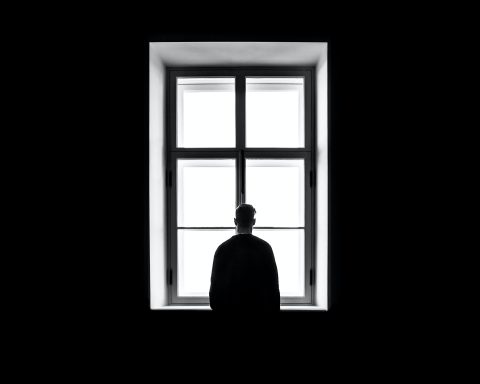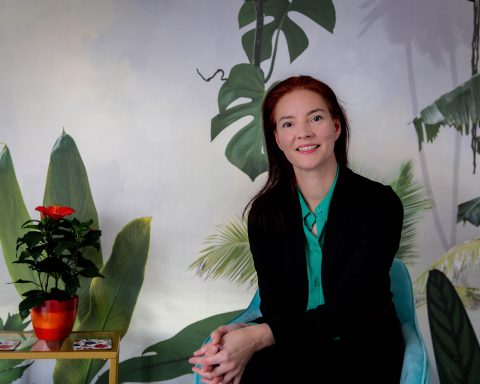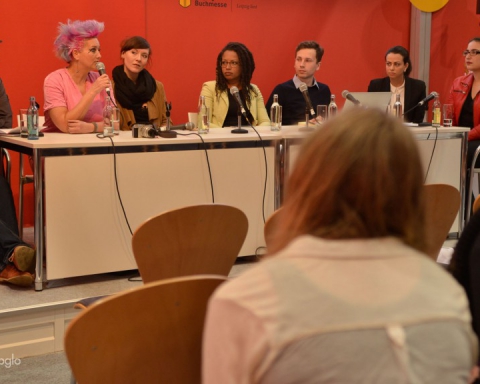“Crito, we owe a cock to Asclepius. See to it and don’t forget.”
– Socrates, Phaedo
Nietzsche couldn’t stand Plato and his teacher Socrates, believing they had inadvertently inspired the ‘anti-body’ ideology of Christianity. For, according to Plato and Socrates (and even later Christianity), the body is a diseased thing and this world the falsest myth.
But I happen to like both Plato and Socrates. Mainly because both believed in reincarnation (or metempsychosis in Greek); for me, this is something I believe to be true. Like Leo Tolstoy, Arthur Schopenhauer and even Ralph Waldo Emerson, believed that our place in this world is one in a series of selves, ones we are connected to and yet not connected to. This life will not be remembered in the next, yet for myself, my belief is that our interests reflect where we’ve been. And where we’re headed.
But that is another blog entry in and of itself.

Friedrich Nietzsche (1844-1900), in comparison with Plato and Socrates, was a bit of an irrational realist. After his adoration of Arthur Schopenhauer (1788-1860) and his friendship with Richard Wagner (1813-1883), he turned away from the pessimism of the former and the high flown neo-romanticism of the latter.
He grew solitary, unhealthy, yet his philosophy managed to be so strong in mindset. Like a failed Pygmalion, Nietzsche sculpted his philosophy of health and rigor without actually being able to embrace it or to live what he preached despite his love for it. After leaving academic life, he suffered terrible headaches, stomach pains and vision problems. Yet he continued to believe and argue for self-overcoming (selbstüberwindung), that through this process, anyone could become an Übermensch. But in order to accomplish this, one had to be alone, cut off from the herd.
(The ‘herd’ as a mass embraces envy; today, we have the infliction of the celebrity lifestyle upon our modern culture and in the United States, huge credit card debt is a result. A whole new form of keeping up with the Joneses, but instead of Mr. and Mrs. Jones, we have George Clooney.)
In my university years I was enamoured by Nietzsche’s philosophy. I was a bit of a solemn and conflicted soul then. I remember walking out of my second-year philosophy class after a lecture on the ‘Eternal Return of the Same’ and feeling like I was floating – not just in one lifetime but in the same cycling lifetime Nietzsche or his alter-ego, Zarathustra (the same name, but not the same character, as the founder of Zoroastrianism) had conjured, one of continuous successions. A November afternoon, I stared at the bare autumn elms and oaks outside the lecture hall, the blinking puddles dappled with heavy drops in the courtyards below. Then I glanced back at all the surroundings, the students, feeling they were both near but extremely far from me, a kind of revelation. Yet part of me knew Nietzsche was taking his teaspoon of Kant then adding in some of the Prussian’s categorical imperative and regurgitating the good parts, creating the idea that whatever we do should be realized as a universal thing to be emulated. For Nietzsche, whatever you do now will be repeated, and can you live with this eternal repetition? Can you say ‘yes’ to the endlessness?
Nearly a year and a half later, I was in the hospital. It was June 2002 and there was a plastic tube attached to the needle in my right hand. The plastic tube connected to a bag of liquid steroid. The diagnosis after the colonoscopy was ‘ulcerative colitis’.
And for those who have never heard of the disease, it is basically an inflammation of the colon. Imagine an ulcer in your digestive tract. Imagine being unable to eat anything without a stomach pain and instead of having a bowel movement, once or twice a day, imagine ten and imagine blood when you wipe (pardon me for the graphic detail…).
The specialist wasn’t helpful; I spoke mostly to his back during two visits. He put his massive binder on the table near the door and, while I sat in bed, he rummaged through his notes and files, muttering to himself and only partially answering me. He had performed the colonoscopy and checked on me only twice. When I left the hospital, I held in my hand two prescriptions and my own book – filled with questions and no answers.
When I saw him again in July of that year, his eyes never met mine, as to him I was merely a number, an impersonal file in his day. While I strained to hear, he mumbled I would have to take the medicine indefinitely. Leaving his office, I decided to research the illness on my own; at least I would be a more compassionate care-giver, more invested in my own desire for health. Through Internet research and sheets provided by my stepmother, I learned ulcerative colitis was chronic, that, sadly, I was merely in remission – mind you with a heavy dose of steroids (prednisone) and anti-inflammatories in my body. I decided to wean myself off the medicine.
For a while I was doing okay but then in 2003, a month after Christmas, the illness struck again. I was hospitalized and instead of losing twenty pounds like in the previous summer, I lost nearly forty-five in two months and on top of this, the answers I received continued to be unhelpful. The new specialists, this time in a Hamilton hospital just southwest of Toronto, suggested I undergo an operation to simply remove my colon. No colon, no disease, they surmised, hands stuffed callously in their pockets, a careless shrug of their cold shoulders.
But also, no answer, I figured, hands over my stomach, shaking my weary head.
Still in the hospital, I began to think about Nietzsche while reading a book on Chinese medicine. “There is more reason in your body than in your best wisdom,” Zarathustra says in the chapter entitled ‘On the Despisers of the Body’. In the book on Chinese medicine, the doctor Michael P. Milburn discusses the idea that every organ emits a kind of emotional ‘resonance’. For the colon, the emotions of ‘compassion’, ‘self-mercy’, ‘self-worth’, and ‘anger’ are all intricately associated. And often intricately denied.
Though I didn’t immediately apply the idea, I began to focus on the concept of healing as something in the heart and the mind as opposed to the body alone. I began to realize that the body is just a guide or a signpost. In the years after checking myself out of McMaster Hospital, I underwent hypnotherapy and counseling, past life regression therapy and even Reiki; I came to the understanding that the body was not something weak but something wise. Moreover, my experience of illness was a mere misinterpretation of previous experiences. That attitude played a seminal role in healing as much as in learning the truth about the self.
In Hamlet, there is the line said by Polonius to his son: “To thy own self be true.” I was not true to myself in the early 2000’s. I was extremely unhappy and terribly unaware. Soren Kierkegaard, the great Danish philosopher once remarked that a broken leg is noticed in society but “…the greatest hazard of all, losing one’s self, can occur very quietly in the world, as if it were nothing at all.”
I would say I was sleepwalking then, miserable but unaware of the inner turmoil that eventually became the illness. Yet, the illness was my honesty, the part I didn’t want to admit.
I turned and returned to Nietzsche, not because he was a role model of health but because his philosophy was. I began to think about resentment but also about forgiveness, as well. I came to the belief that forgiveness was not a weakness but a strength. According to Nietzsche, Christianity arose out of a slave morality (Sklavenmoral), that the slaves, instead of rebelling and taking what they wanted, played the role of the fox in the fairy tale and regarded everything as sour grapes. They want the grapes but believe it is better to long for the next world. All the while, chastity is purity and turning the other cheek a form of strength. Nietzsche derided this, believing Pontus Pilate to be the truly admirable character from the Gospels and not Jesus.
Yet I learned that forgiveness is key. Forgiveness is like a form of release, providing the realization that one is never the victim. It is the victim, the slave to the past who seethes with rage but when realizing the role he/she plays in what happens, chooses their reactions, takes more control, becomes more active than passive in life and, as a result, suffering recedes.
And overcoming depression is another element. Depression is essentially ‘anger directed inward’. Perhaps it is all just chemicals but isn’t that suggesting we have no control? We blame the other and the unknown when, in truth, the other and the unknown together are also us.

Nietzsche lost his father; so when he began reading Schopenhauer and befriending Wagner, they were in a sense father figures for the philosopher. And gradually, he had to rebel against both of them. For myself, I had to confront my own father. Things I had put off saying for a decade bubbled angrily to the surface. The self I had to overcome was the one that placated and didn’t want to stand out, didn’t want to make waves.
During my early twenties, I discovered some very close family members had been involved with a certain theft of my maternal grandfather’s estate. Money left for education purposes was whisked surreptitiously away and my father knew of this (my father being a kind of friend of my mother’s sister).
I thought I had forgiven him and moved on but while in Leipzig in 2012, I began to experience – or re–experience – some of the colitis symptoms. Only after a rather honest and heated phone conversation did I began to relieve myself of the burden of truth. I had to come out and tell my father how angry I was and that this anger had manifested first as a depression until the colon in my body was affected. The low-self worth was intricately linked to believing I had ‘no say in the matter’. Rising out of the chasm of low self- worth, I began to notice immediate results.
Since that miraculous conversation in August 2012, I have learned more about myself and the nature of illness.
Yet, when I think of Nietzsche and his sufferings, I believed he wore the badge of his sufferings, that he thought his pain ennobled him. Throughout my healing experience, I did my best to stay clear of any society or club that linked people through illness. I didn’t want to speak of my illness like a pet or a child I tended. Yet, I have also learned that there are some with bowel diseases who unconsciously love their illness because it offers their life meaning. And, in some subtle way, it protects them from the outside world – illness as a gatekeeper.
True, there are times when my body offers complaint but this is the time when I realize I am dwelling in a place of low self-worth, that I am fighting my truer self in order to placate, in order to recede to that previous self. Yet, to nurture an illness and bemoan the body is to misinterpret and deny the journey towards an overcoming. I really don’t want to call it healing because when you cut yourself, the body mends and you forget the cut months or years later. An illness should never be forgotten the way you should never forget a great teacher. So, not a healing in the physical sense of the word but an ‘overcoming’ in the philosophical sense.
Still, in our society, we don’t speak openly of illness because it is anti-life and anti-health. I think it is important to be open about illness and its meaning. We need to remember the body’s seminal role in illness and not let the illness overshadow ourselves and our being. This is why I have been working on a book over the years entitled From the Jaws of the Lion; overcoming the self, overcoming colitis. This blog entry is only a fraction of my philosophy, yet it pays homage to Friedrich Nietzsche and his philosophy.
But not to his life.









